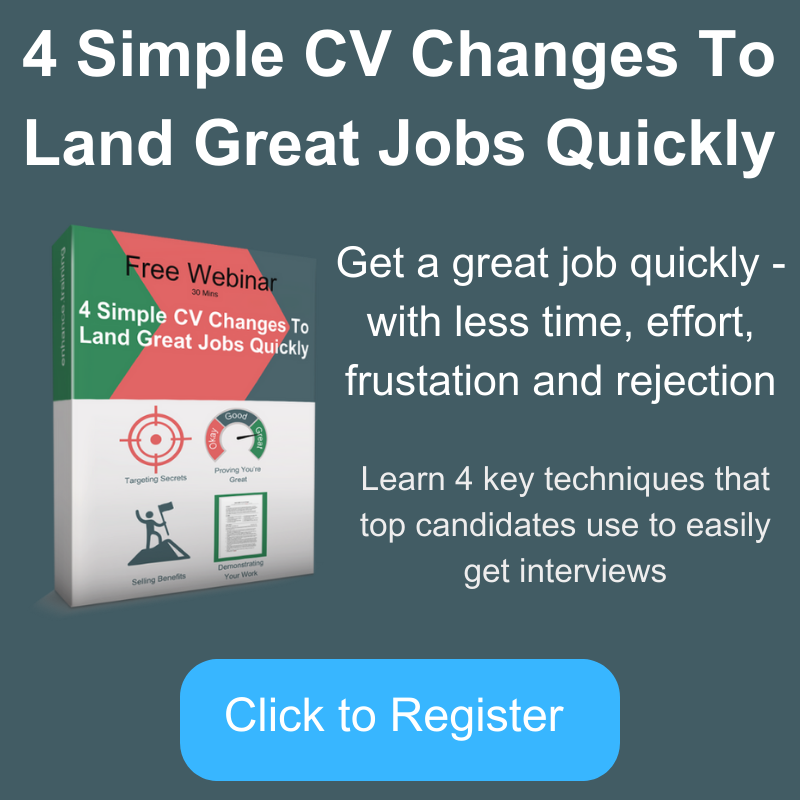How to succeed in an Interview
Going to interviews can be a stressful nerve-racking experience, even for those with plenty of experience. The nerves, worrying about what interview questions are going to be asked and will you have a good answer for them. Being in the spotlight and quizzed on your experience, what you think and have done is not most people’s idea of fun.
Nearly every job requires you attend an interview, whether internal promotion or an external job. Interviews are here to stay, and it makes sense to practice how to succeed in an interview.
How do you get to the point that you succeed in an interview?
Being calm, relaxed and confident feels so much better than nervous, apprehensive and on edge. When, nervous you don’t act quite like your normal self. Thinking straight is that much harder. You get flustered quicker and walk out of the interview saying “why did I answer the interview question like that, I should have said this”
When calm and confident, having spent time researching and preparing, you want to get into the interview to show off all that hard work. You want to demonstrate how keen you are on this job. You can’t wait to tell the interviewer about all the skills and experience you have that will allow you to do a great job.
Picture that phone ringing and the hiring manger telling you “we were really impressed by you, everyone liked you and when you can start?” You have succeeded in an interview. What a great feeling!
Prepare to succeed
Getting the right job is not all about how well you prepare. There are many factors involved. Preparation is the area you control, and it makes a big impact on your chances of success. Why wouldn’t you prepare?
“Fail to prepare, prepare to fail”
Let’s go through some tips on how to prepare for interviews.
How to Prepare for an Interview
Focus on what you are good at and love doing
Don’t apply to jobs that you don’t have the skills to do at least okay or that will make you miserable. Life’s too short and this is not how to succeed in an interview.
Make a start by writing down the parts of past jobs you are good at, and what you really like doing. Think about all those projects or tasks that you aced and doing so made a difference to your employer. Cast your mind back to all the positive comments made in your appraisals or by your colleagues.
Play to your strengths and work on improving these. You will progress much further in your career by focusing on strengths than spending lots of energy on improving your weaker areas.
Write down your achievements
All your statements about key skills and experiences will need proof to back them up. It is easy to make statements, but much harder to tell stories that demonstrate those statements. Make sure you tell those stories backed up by specific and relevant achievements.
Go through your experience and write down all the achievements you have delivered – personally or through your team.
Focus on providing context and the result achieved. How much time, effort or money did you save? Talk about achievements in terms of how the company you are working for benefited.
Providing “proof” strengthens your written CV and provides the backbone of how to succeed in an interview
Be clear about and prioritise your values
Values? What have these got to do with getting a job? Surprisingly, a lot. People hire people they like. It is easier to like those with similar values to yourself.
And being selfish, the more similar the company’s values are to yours, the happier you will be, the better at your job you will be and the further ahead you will get in your career at that company. The research proves it.
Lot’s of reasons why you should pay attention to values!
Spend time working out which of your values are important to you. Place them in order, must haves at the top, not fussed at the bottom.
Apply for jobs at companies that you think have a similar set of key values as you do. You will discover more about the company’s values and the hiring manager’s approach and style during the interview process through how you are treated.
Tips on writing your CV
Write your CV using your likes, your strengths and achievements. The most popular CV format by far is the chronological order with the most recent role first through to the oldest roles at the back.
Can you tell your story in 6 seconds? That is all you have to grab the readers interest, or your CV goes on the reject pile along with 80%+ of applicants. Scary isn’t it.
The summary or first paragraph is critical. Put the key points you want to get across right at the top. Make sure your job titles and the company names are really clear on the first page.
If you grab the readers interest, then all the additional information comes into play. Keep it clear and concise because you have to get as much information to the reader as quickly are possible. Make sure there is as little jargon as possible on a CV, even if you have a technical role.
You don’t have to say everything on your CV. The interview is the opportunity to expand on what your CV states. Keep your CV focused on the most important information that makes you look good.
Ask a friend who does not have your background to read through your CV. If they don’t understand or don’t follow what you have written, change it so they do.
Keep changing and improving your CV until you are getting interview invitations in the numbers you need.
Do your research on the job, company and industry
As a hiring manager, I want to know that you are interested in joining my team and my company. If you don’t know much about us, why should I want you. If you are not keen on us, why should I be keen on you.
Doing research on the job and company helps you make up your mind whether you want to join that company and do the job on offer. Your enthusiasm comes across during the interview with your tone of voice, excitement and body language. What better way to impact how you succeed in an interview.
Enthusiasm, excitement and keenness for the job and company counts. It is hard to fake and has as much impact as your skills and experience.
Research also gives you lots of opportunity to demonstrate to the hiring manager you have put to effort in to find out about the company.
It can also be good to use your research to “personalise” your CV for the job and company you are applying to.
How to ace an interview
Practice answering typical interview questions
There are hundreds of interview questions. You will not be able to learn them all, nor have a prepared response for each. This is where you apply the 80-20 rule. Do your research and prepare answers to be most likely interview questions.
We recommend sitting in front of a mirror or with a friend and speaking out loud your answers. Keep doing this until you are happy with your answers and comfortable telling each mini story.
Make sure the stories you tell are your stories, not example answers found in books and by googling. Of course, use example answers for their structures and then put your words and experiences into these structures. Be true to yourself.
It may seem silly or embarrassing to be speaking out loud. The reasons you should include:
- You can check how the answer sounds – is it clear or confusing. Concise or long winded. Would you be engaged hearing it? You don’t want the interview losing the thread of your story.
- Are you answering the question asked? If you are unsure of what the question is, ask for clarification.
- What is your tone of voice like – confident or unsure. If you don’t believe what you are saying, why should the interviewer?
- If you are okay with talking to mirror or a friend, then answering question during the interview will be easier.
- Repeatedly answering interview questions out loud builds your confidence. Not that different from an actor learning their lines.
The more you practice, the more relaxed, confident and natural you will be on the day. You want to succeed in the interview.
On the day of the interview and tips for the interview
Picture how the interviewer will be dressed. You should aim to wear the equivalent, to be dressed at least as smart as they will be. If in doubt, aim for smarter and more formal rather than less so.
Make sure that you arrive early, and spend time mentally preparing. Go over the answers to likely interview questions in your mind. Taking a walk while doing this is a good way to calm nerves.
Use any waiting time in reception to observe the people coming and going, chat to the receptionist about what working there is like and read brochures. Don’t look at your phone. You need to show that you are interested in the company to all who might see you.
When you enter the interview itself smile and spend some time in small talk to put yourself and the interviewer at ease.
Listen carefully to each question asked. If is really important you understand what is being asked before answering. Answering a different question will cast doubt on your listening skills.
Make sure that you have a number of questions to ask the hiring manager that demonstrate you have done your research and you are keen on the company.
And finally enjoy the interview. After all, you are closer to getting the job that you want!




